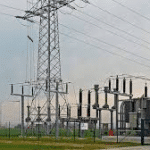Are you a business owner who frequently handles other people’s property? Whether you run a storage facility, repair shop, or any business that involves taking custody of someone else’s belongings, it’s crucial to understand the potential risks and liabilities that come with this responsibility. In today’s litigious society, even a minor mishap can result in devastating financial consequences for your company. That’s where bailees insurance steps in as your knight in shining armor!
In this blog post, we’ll delve into the world of bailees insurance and show you how it can safeguard your business from costly mistakes and unexpected liabilities. So buckle up and get ready to learn how to protect yourself and your customers with this invaluable bailees coverage.
Types Of Businesses That Need Bailees Insurance
- Storage and Warehousing Businesses:Businesses such as storage facilities, warehouses, and self-storage units are at high risk for liabilities related to property damage or loss. These types of businesses take temporary custody of their customers’ belongings, making them responsible for any damages or losses that may occur during storage. Bailees insurance provides protection in case a customer’s property is damaged due to fire, theft, or natural disasters while in the business’s care.
- Art Galleries and Museums:Art galleries and museums often exhibit valuable pieces of art owned by collectors or organizations. In these cases, bailees insurance can provide financial protection in case of accidental damage or loss to the artwork while on display at the gallery/museum premises. This type of coverage also extends to any works being transported between locations.
- Dry Cleaners:Dry cleaners are another type of business that can greatly benefit from bailees insurance. Customers trust dry cleaners with their expensive clothing items, making them responsible for any damages that may occur during the cleaning process. Bailees insurance will cover costs associated with repairing or replacing damaged items.
- Car Dealerships and Repair Shops:Car dealerships and repair shops often take possession of customers’ vehicles during sales or repairs – making them liable for any damages caused while under their care. With bailees insurance, these businesses can rest assured knowing they are protected against potential lawsuits stemming from accidents or thefts that occur on their premises.
- Moving Companies:Moving companies transport customers’ belongings from one location to another – which often involves handling valuable and fragile items such as furniture, electronics, and antiques. Having bailees insurance can protect moving companies from liability if any property is damaged or lost during the moving process.
Common Risks Faced By Businesses Without Bailees Insurance
1) Damage or Loss of Customer Property
One of the main risks faced by businesses without bailees insurance is the potential damage or loss of customer property. For example, if a dry cleaner accidentally damages a customer’s expensive suit while trying to remove a stain, they could be held liable for the cost of replacing it. Similarly, if a warehouse experiences a fire and all stored goods are destroyed, they would be responsible for compensating their customers for their lost inventory.
2) Theft or Burglary
Businesses that handle valuable items are also at risk of theft or burglary without proper insurance coverage. If someone breaks into a jewelry store and steals expensive pieces from their clients’ collections, the business could be held accountable for reimbursing their customers.
3) Accidents on Business Premises
Another risk faced by businesses without bailees insurance is accidents occurring on their premises. Whether it’s an employee slipping and falling while handling customer property or someone being injured due to faulty equipment in a repair shop, these accidents can lead to costly lawsuits if not properly insured.
4) Errors and Omissions
Mistakes happen in every industry; however, when it comes to handling valuable items belonging to others, even small errors can result in significant consequences. For instance, if an art restoration company accidentally damages a priceless painting, they could be facing a massive financial loss without bailees insurance to cover the cost of repairs or replacements.
5) Legal Expenses
Businesses that do not have bailees insurance are vulnerable to various risks that could lead to significant financial losses. It is vital for companies in industries that handle or store goods belonging to others to safeguard themselves with adequate insurance coverage. By doing so, they can protect their customers’ property and their own bottom line from potential liabilities and costly mistakes.
Benefits Of Having Bailees Insurance For Your Business
- Protection against financial losses:primary benefit of having bailees insurance is protection against financial losses. If a customer’s property is lost, damaged, or stolen while in your possession, you could be held liable and required to compensate them for any resulting damages. Without adequate insurance coverage, these costs can quickly add up and potentially bankrupt small businesses. Bailees insurance provides coverage for such scenarios and helps prevent substantial financial losses.
- Enhanced reputation and trust:Having bailees insurance can also improve the reputation and trustworthiness of your business in the eyes of customers. By having this coverage in place, you are demonstrating to potential clients that you take their property seriously and are willing to assume responsibility if anything were to happen to it while under your care. This can go a long way in building strong relationships with clients who value transparency and accountability.
- Compliance with contractual requirements:Many contracts between businesses include clauses regarding liability for customer’s property while it is under the care of one party. Having bailees insurance ensures that you comply with these requirements and avoid any potential breach of contract situations which could result in costly legal disputes.
- Comprehensive coverage:Bailees insurance provides comprehensive coverage not only for damage or theft but also includes other forms of loss such as misplacement or unintentional destruction by employees or third parties working on behalf of your business.
- Customizable policies:Bailees insurance policies can be tailored to fit the specific needs of your business. This flexibility allows you to customize bailees coverage limits, deductibles, and endorsements according to the type and value of property you handle. You can also add additional coverage for unique situations that may not be covered under a standard policy.
How To Choose The Right Bailees Insurance Policy For Your Business
1) Coverage limits: Make sure the policy provides enough coverage for your specific needs. If your business deals with high-value items, it’s important not to underestimate the value when selecting a limit.
2) Types of losses covered: Most bailees policies cover damage or loss due to fire, theft, vandalism or water damage; however some may exclude certain causes such as flood or earthquake. Be sure that all potential risks are covered under your chosen policy.
3) Deductible amount: This is the amount that must be paid out-of-pocket before any insurance benefits can be claimed. A higher deductible typically means lower premiums but could result in higher out-of-pocket costs if a claim is made.
4) Additional coverage options: Some policies may offer additional coverage for specific risks, such as employee theft or damage caused by natural disasters. Consider the likelihood of these events occurring in your business and whether the extra cost is worth the added protection.
Key Features And Coverage Of A Typical Bailees Insurance Policy
- Property Coverage:Bailees insurance policies provide coverage for damage or loss of the customer’s property while it is in the possession of the business. This includes any damage caused by fire, theft, natural disasters, or other unforeseen events. It also covers any accidental damage caused by employees during handling or storage.
- Legal Liability:One of the most critical features of a bailees insurance policy is its legal liability coverage. This protects businesses from legal action taken against them by customers who have suffered damages to their property while in their care. Without this coverage, businesses could face significant financial losses due to costly lawsuits.
- Bailee’s Customers’ Goods Endorsement:Some bailees insurance policies offer an additional endorsement known as “bailee’s customers’ goods.” https://piainsagency.com/commercial-products/insurepack/insurepack-bailee-coverag provides coverage for any goods belonging to third parties which are temporarily in your possession for repair or storage purposes.
- Transit Coverage:Most bailees insurance policies also include transit coverage to protect your business when transporting customer’s goods to and from your location. This feature ensures that your business is covered even if the damage occurs during transportation.
- Temporary Storage Extension:Many bailees insurance policies offer temporary storage extensions as an added benefit at no extra cost to you as a business owner. This means that if you need to store customer’s belongings temporarily on your premises before completing repairs or returning them back to the owner, they will still be covered under your policy.
6.Mechanical Breakdown Coverage:Some bailees insurance policies also include coverage for mechanical breakdowns or malfunctions while the property is in the care of your business. This feature is particularly beneficial for businesses that handle high-value items such as electronics or machinery.
Tips For Filing A Claim
- Understand your insurance coverage: Before filing a claim, it’s important to understand what your Bailees Insurance policy covers. Take the time to review the policy and make note of any exclusions or limitations that may apply to your specific business. This will help you determine if the incident you’re filing a claim for is covered under your policy.
- Document everything: When an incident occurs that may lead to a claim, it’s crucial to document everything in detail. This includes taking photos, obtaining witness statements, and keeping records of any damages or losses incurred. The more evidence you have, the stronger your claim will be.
- Notify your insurer as soon as possible: It’s important to notify your insurer as soon as possible after an incident occurs that may result in a claim. Most policies have a time limit for reporting claims, so failing to do so within the specified timeframe could invalidate your claim.
- Be honest and accurate: When filling out the claim form, be honest and accurate with all information provided. Any false or misleading information could lead to delays in processing or even denial of your claim.
- Keep track of expenses: In addition to documenting physical damages or losses, keep track of any expenses incurred as a result of the incident such as repair costs, replacement costs, or loss of income. These can be included in your claim for reimbursement.
- Cooperate with investigators: Depending on the severity of the incident, your insurer may send out an investigator to gather more information about the incident and assess any damages or losses claimed. It’s important to cooperate with these investigators and provide them with all necessary information they require.
- Keep copies of all correspondence: Throughout the claims process, there may be multiple forms and documents exchanged between you and your insurer regarding the status of your claim. It’s important to keep copies of all correspondence for future reference.
- Follow up: If your claim is taking longer than expected to process, don’t hesitate to follow up with your insurer for updates. In some cases, providing additional information or documents may help expedite the process.
- Seek legal advice if needed: If you encounter any issues or disputes during the claims process, it’s advisable to seek legal advice from a professional who specializes in insurance law.
Conclusion
Filing a claim can be a complex and time-consuming process, but following these tips can help ensure that your claim is processed smoothly and efficiently. Remember that Bailees Insurance is there to protect your business from liability, so don’t hesitate to utilize this valuable coverage when needed.















